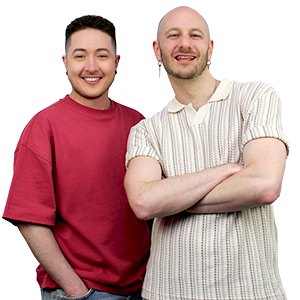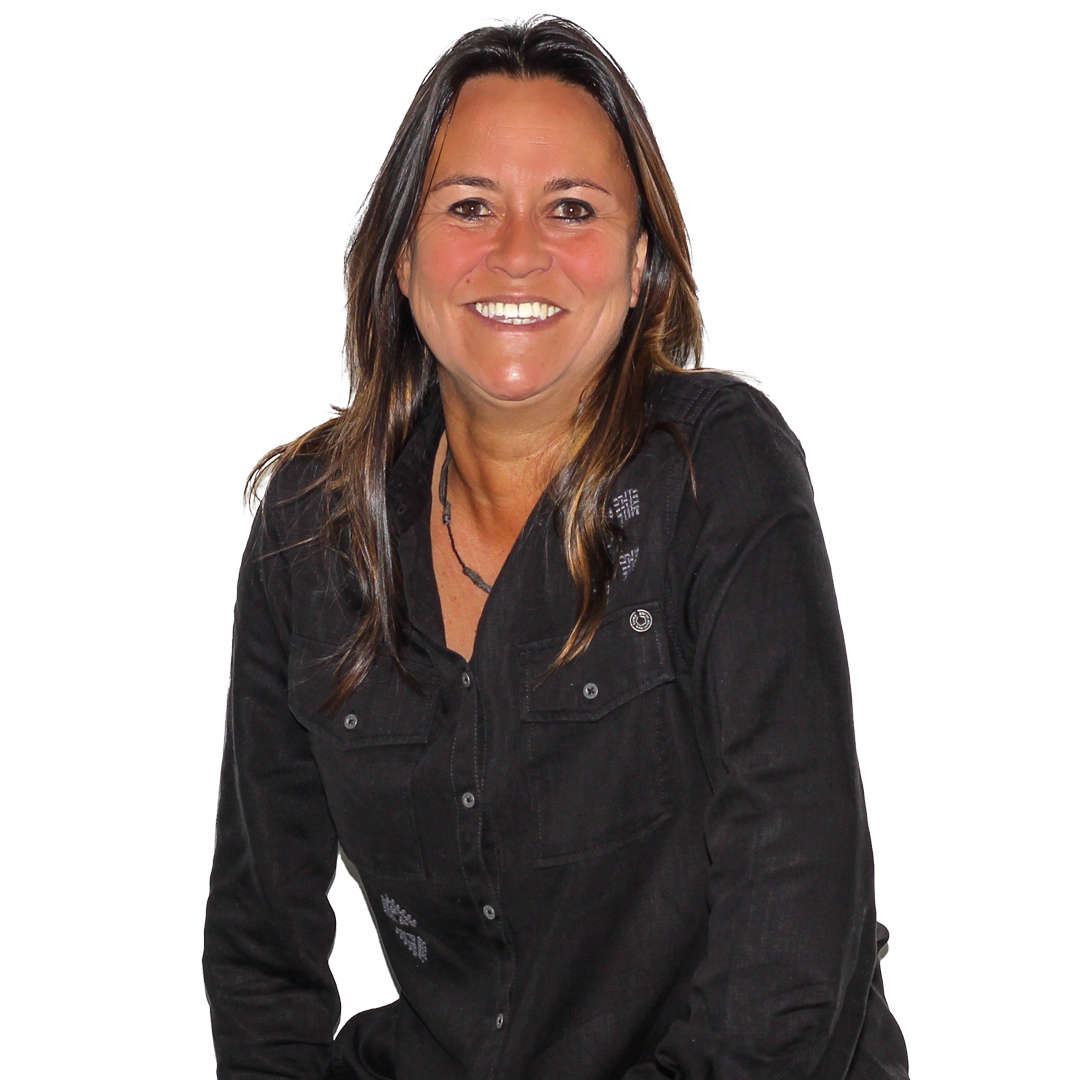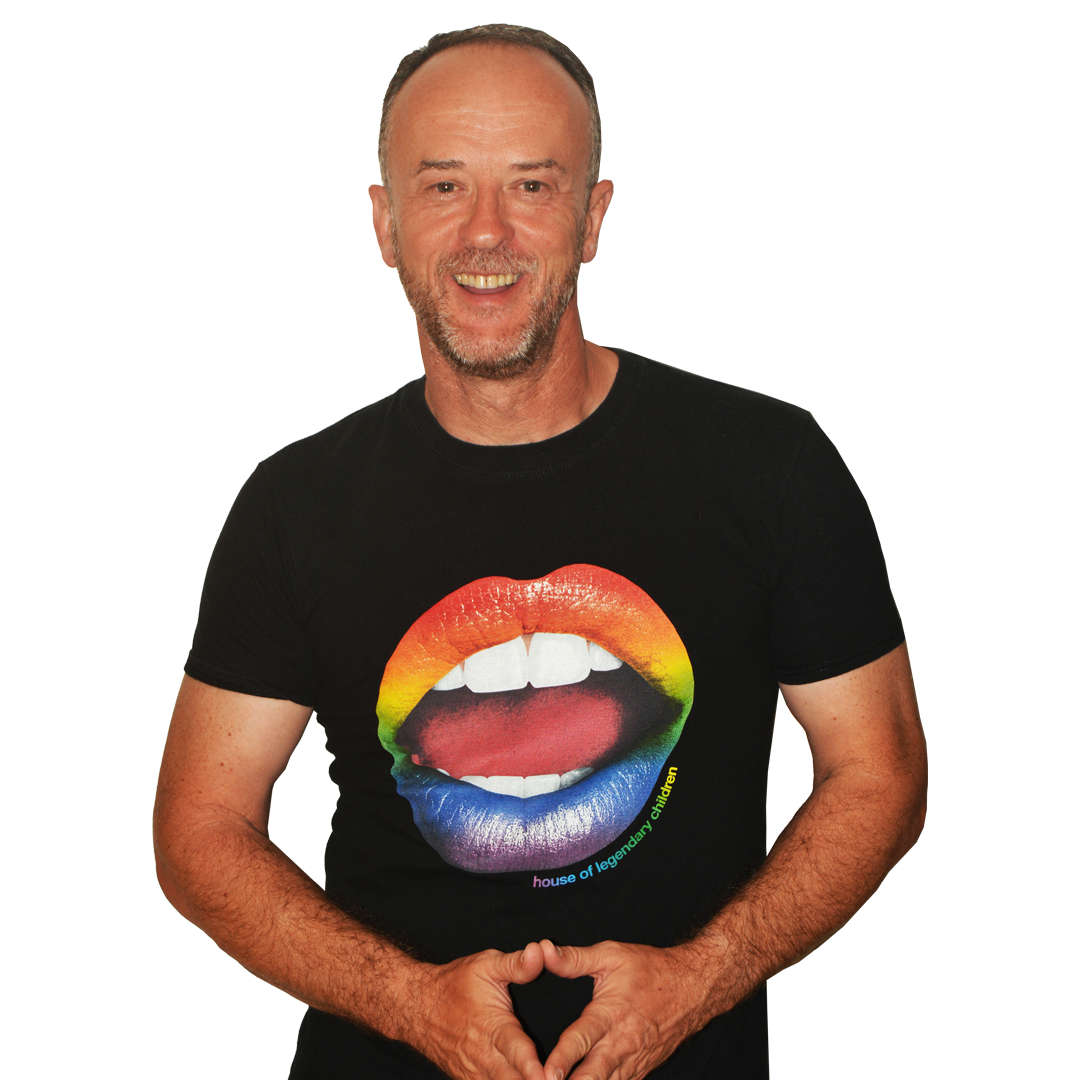Warning: This article contains references to suicide
Scott picks up a rifle and walks to an open window that overlooks the fast-flowing river. He takes aim at an invisible target, rests the gun's barrel on the window sill and shakes his head. "I can't do this any more," he says, his voice faltering.
The mop of shaggy, grey hair hints at Scott's age. In his 60s, he has a sturdy build and walks with a slight limp. When he was younger he spent his free time shooting, fishing and canoeing. But these days, Scott doesn't have the energy for outdoor pursuits. Instead, he lies on his sofa all day "paralysed with fear".
"I'm tortured," he says. "It's a feeling that's always there."
Scott's depression and anxiety spirals into suicidal thoughts several times a week. The panic attacks started in 1984, shortly after his mother took her own life. He struggled to process his grief and felt "angry at mum for being sick".
"I didn't understand the disease," he says.
Scott spent the next decade seeking professional help, while trying to live a "normal life". He got married, started a family and continued to work. But his depression deepened. Eventually he was signed off sick from his job working for the state government's liquor licensing board.
Now, he lives alone in rural Waterloo, Ontario, which is about a 90-minute drive from the provincial capital Toronto. Built mostly of wood, his house is set back from the road and surrounded by trees, with the river frothing not far from his porch door.
At the front, set into the neat lawn, is a weighty marble plaque that reads "in loving memory of Joan". It is a tribute to Scott's wife who died four years ago. After being given three months to live, and in insufferable pain from ovarian cancer that had spread throughout her body, Joan opted for an assisted death at home.
"I've cried 10 million tears," he says of losing his wife, weeping uncontrollably. "I sat on one side," Scott says, pointing to the sofa in the room. "And my daughter was on the other. The nurse put the intravenous drip into her arm and administered the drugs."
Scott placed his finger on the pulse on his wife's neck. "I felt it stop beating at exactly 3.15pm. I turned to the nurse and said 'I think she's dead now'."
Read more:
Why is assisted dying so controversial?
Wes Streeting to vote against assisted dying
A small container of Joan's ashes sits on his bedside table. When his thoughts darken and turn suicidal, he holds it for comfort. "She had a crooked front tooth," he says, shaking the container. "I like to think of that as her smile… when I talk to her at night."
MAiD or Medical assistance in dying was introduced in Canada eight years ago after a legal challenge to the country's Supreme Court. A terminally ill patient and the family of a dying woman successfully argued that not being allowed to choose how and when they died was an infringement of their human rights.
Canada now leads the world in the number of assisted deaths. In 2021, it recorded 10,064 assisted deaths (3.3% of total deaths). It has now overtaken the Netherlands (7,666 assisted deaths in 2021) and Belgium (2,699).
This week, the United Kingdom will consider passing legislation to allow assisted dying for adults with six months to live.
But although Canada's MAiD was originally intended to be used in exceptional circumstances, repeated challenges have extended the programme to include disability. A law was passed in 2021 to extend MAiD to people with serious mental health problems. It was due to come into effect in 2023 but has now been delayed until 17 March 2027. It was postponed following concerns about its potential impact on the country's healthcare system.
Scott is waiting for his turn to apply.
A few hundred miles eastwards from Scott's home is the small town of Oshawa.
This is where retired palliative care nurse Robyn Marson lives. Robyn is only 55 years old but was signed off sick from her job after she became seriously ill two decades ago.
"I've been diagnosed with many different things," Robyn says. She has a list of all her conditions but many are complex. The two she says that would be most commonly understood are degenerative disc disease and polymyalgia - a condition that causes pain, stiffness and inflammation in the muscles around the shoulders, neck and hips.
Robyn lives in a townhouse on a modern housing estate outside the city centre. Boxes of high-energy meal replacement drinks are stacked in the hallway. Upstairs, the lounge is dominated by a large red sofa covered with bedding and pillows. Clutter is piled up high. Some light floods the room through a large window but outside is the dull, flat grey of Canada's colder months.
Robyn sits silently on the sofa. A half-smile, frozen on her face. Looking down on her from every angle is the image of Princess Diana. There are dolls, dozens of them. Mostly crowded into glass cabinets. Framed paintings and photographs of her icon adorn every wall.
Robyn says her obsession with Diana grew because she felt they shared a connection. "Depression".
The late royal's replicas stare down at her as she takes a cocktail of drugs to manage her physical pain and mental anguish.
She never leaves the house. She rarely leaves this room.
"I'm not able to take a shower, go for a walk. I'm not able to make something to eat. I can't make my bed. I can't put things away in my house."
Despite existing with a constant physical pain that "stops her from living", Robyn's poor physical health doesn't qualify her for an assisted death. Instead, she is hopeful her poor mental health will allow her to access Canada's MAiD programme in two years' time.
"I have a diagnosis of depression, anxiety, social phobia and borderline personality disorder. So that would be my route to try and go." The desperation in her voice is obvious.
Dr Ramona Coelho, a GP from London, Ontario, is one of the country's most prominent voices against assisted dying. Her fear is that Canada's vulnerable communities are being offered suicide assistance instead of suicide prevention.
Anyone requesting assisted dying must have a medical reason - a fatal diagnosis or unmanageable pain - but there are cases of patients experiencing isolation and homelessness who have asked to be killed.
"The Human Rights Commissioner of Canada has twice repeated warnings that they're concerned about reports of people dying by assisted dying who seem to be choosing it because their support and services are not in place," says Dr Coelho.
Trudo Lemmans, a professor of bioethics and health law at Toronto University, supported assisted dying in Canada when it was introduced in 2016. But he is deeply concerned at the way the programme has expanded and, in his view, "crossed the line" to include the disabled and now mentally ill patients.
He describes assisted dying as a "Pandora's Box" and warns that it has become "normalised" as "a kind of first-line therapy".
On Friday, England and Wales will vote on legalising assisted dying. Kim Leadbeater, the MP who introduced the bill, insists it will only ever apply to terminally ill adults with six months to live, or less.
She dismisses comparisons with other countries like Canada where the criteria for assisted dying are broader as "inaccurate and misleading", and sees those arguments as a distraction.
"The Terminally Ill Adults (End of Life) Bill has the strictest criteria and the most robust safeguards in the world," says Leadbeater.
Canada insists it is the human right for its citizens to die in dignity to end their prolonged suffering and pain.
Scott and Robyn are waiting for their turn.
Anyone feeling emotionally distressed or suicidal can call Samaritans for help on 116 123 or email jo@samaritans.org in the UK. In the US, call the Samaritans branch in your area or 1 (800) 273-TALK

(c) Sky News 2024: Depressed and desperate to die: Has assisted dying in Canada 'crossed the line'?

 Storm Bert: Father rescues son from sinking car as floods wreak havoc
Storm Bert: Father rescues son from sinking car as floods wreak havoc
 Russian forces capture 'former British soldier' fighting for Ukraine - reports
Russian forces capture 'former British soldier' fighting for Ukraine - reports
 UK in AI arms race with Russia as Putin 'wants destruction', minister to warn
UK in AI arms race with Russia as Putin 'wants destruction', minister to warn
 Adele bids tearful farewell to Las Vegas residency as star admits she doesn't know when she'll perform next
Adele bids tearful farewell to Las Vegas residency as star admits she doesn't know when she'll perform next
 Army officer charged over dummy grenade alert at Edinburgh Airport
Army officer charged over dummy grenade alert at Edinburgh Airport
 Bar staff to be trained to deal with incidents of drink spiking
Bar staff to be trained to deal with incidents of drink spiking







